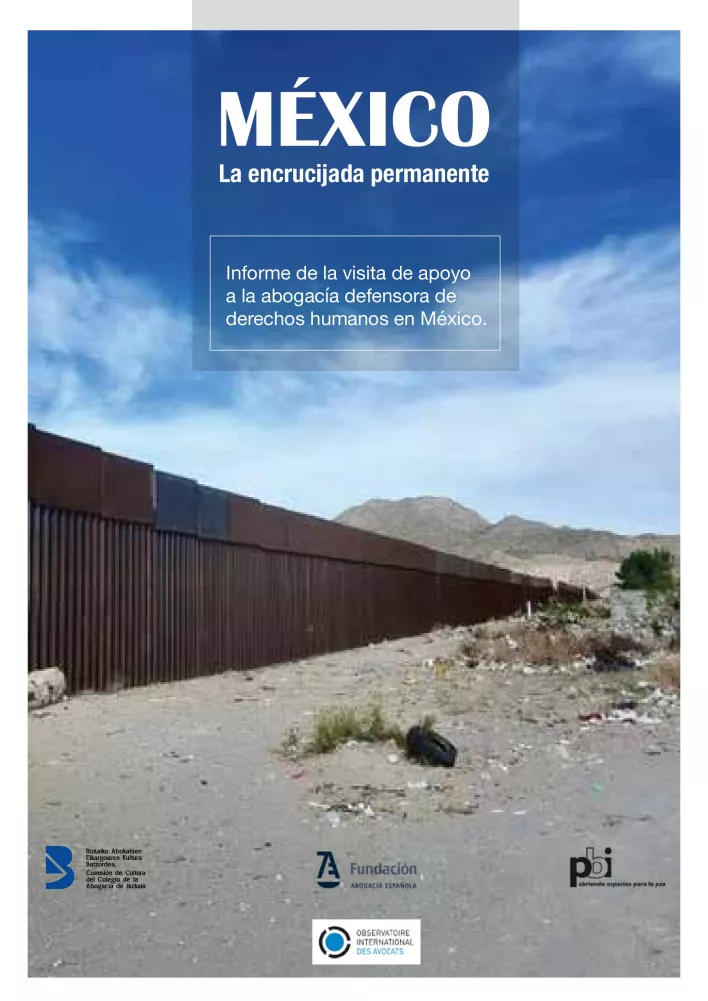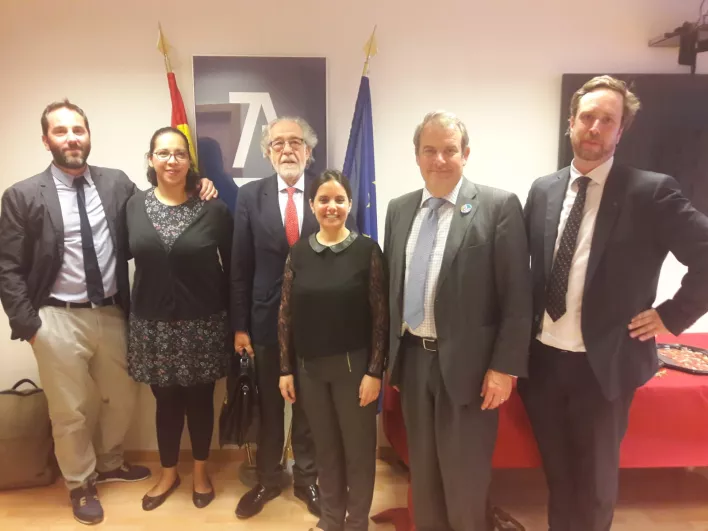
The mission´s report, “Mexico: Constanly at Crossroads”, draws together the observations and conclusions from the expert lawyers about the context, normative framework and cases that directly and indirectly impact the risk that the human rights defenders experience in their work as lawyers. Amongst the conclusions, they highlight the insecurity that worsens with social stigma, difamation and the discrediting of their work or institutions, which is carried out intentionally in order to legitimate the violence used against them. They also warn of the heightened risk particularly in moments in judicial trials of court hearing or when declarations are heard. In order to confront this situation, they reccommend that the Mexican State initiates a holistic protection plan which adheres to the standards of the Inter-American Human Rights Commission, which recognise the inter-relation and inter-depedence of the obliations of the State so that human rights defenders can carry out their work in a free and safe environment.
Within the normative framework they go into depth about the General Law that Prevents, Investigates and Sanctions Torture and other Cruel, Inhumane or Degrading Punishments as well as the General Law for Forced Disappearances and the Disappearance Committed by Individuals. With respect to the topic of torture, in the report a few proposals are listed to confront the challenges that persists in the implementation of the law, for example the exclusion of illicit evidence and that the investigation of the illicit evidence is given a central position.

The report “Mexico: Constantly at Crossroads” was presented in Bilbao, Madrid and Brussels and was supported by the International Observatory for Lawyers at Risk. In these presentations PBI took part, alongside the director of the Casa del Migrante Saltillo, Alberto Xicoténcatl and the lawyer Norma Quintero from the organisation Fray Juan de Larios. The conclusions and reccommendations from the report were shared with diverse representatives of European and Spanish governmental authorities in advocacy meetings.
